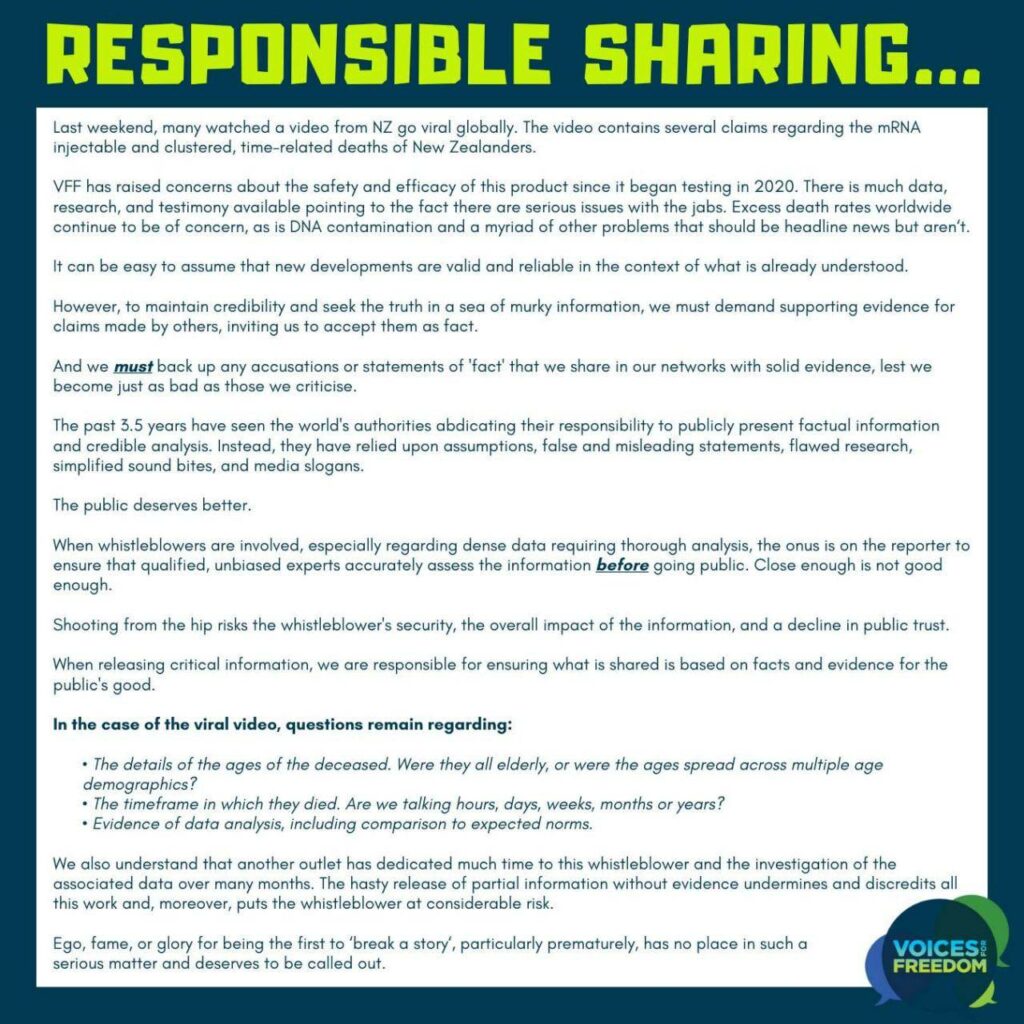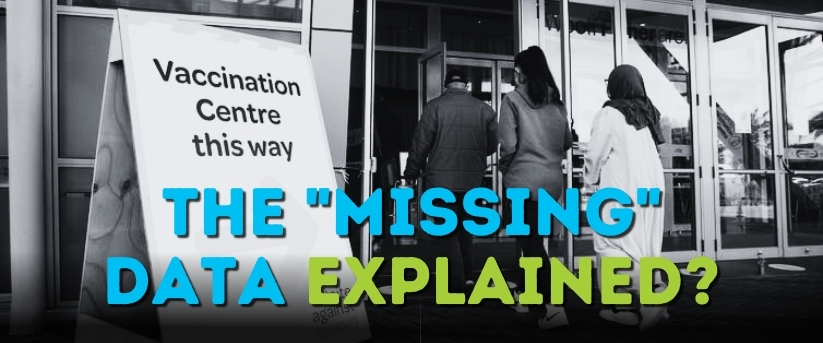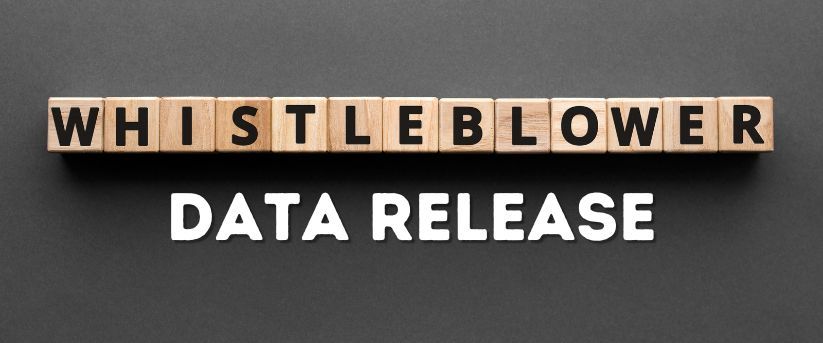Last weekend, many watched a video from NZ go viral globally. The video contains several claims regarding the mRNA injectable and clustered, time-related deaths of New Zealanders.
VFF has raised concerns about the safety and efficacy of this product since it began testing in 2020. There is much data, research, and testimony available pointing to the fact there are serious issues with the jabs. Excess death rates worldwide continue to be of concern, as is DNA contamination and a myriad of other problems that should be headline news but aren‘t.
It can be easy to assume that new developments are valid and reliable in the context of what is already understood.
However, to maintain credibility and seek the truth in a sea of murky information, we must demand supporting evidence for claims made by others, inviting us to accept them as fact.
And we must back up any accusations or statements of ‘fact’ that we share in our networks with solid evidence, lest we become just as bad as those we criticise.
The past 3.5 years have seen the world’s authorities abdicating their responsibility to publicly present factual information and credible analysis. Instead, they have relied upon assumptions, false and misleading statements, flawed research, simplified sound bites, and media slogans.
The public deserves better.

When whistleblowers are involved, especially regarding dense data requiring thorough analysis, the onus is on the reporter to ensure that qualified, unbiased experts accurately assess the information before going public. Close enough is not good enough.
Shooting from the hip risks the whistleblower’s security, the overall impact of the information, and a decline in public trust.
When releasing critical information, we are responsible for ensuring what is shared is based on facts and evidence for the public’s good.
In the case of the viral video, questions remain regarding:
- The details of the ages of the deceased. Were they all elderly, or were the ages spread across multiple age demographics?
- The timeframe in which they died. Are we talking hours, days, weeks, months or years?
- Evidence of data analysis, including comparison to expected norms.
We also understand that another outlet has dedicated much time to this whistleblower and the investigation of the associated data over many months. The hasty release of partial information without evidence undermines and discredits all this work and, moreover, puts the whistleblower at considerable risk.
Ego, fame, or glory for being the first to ‘break a story‘, particularly prematurely, has no place in such a serious matter and deserves to be called out.






